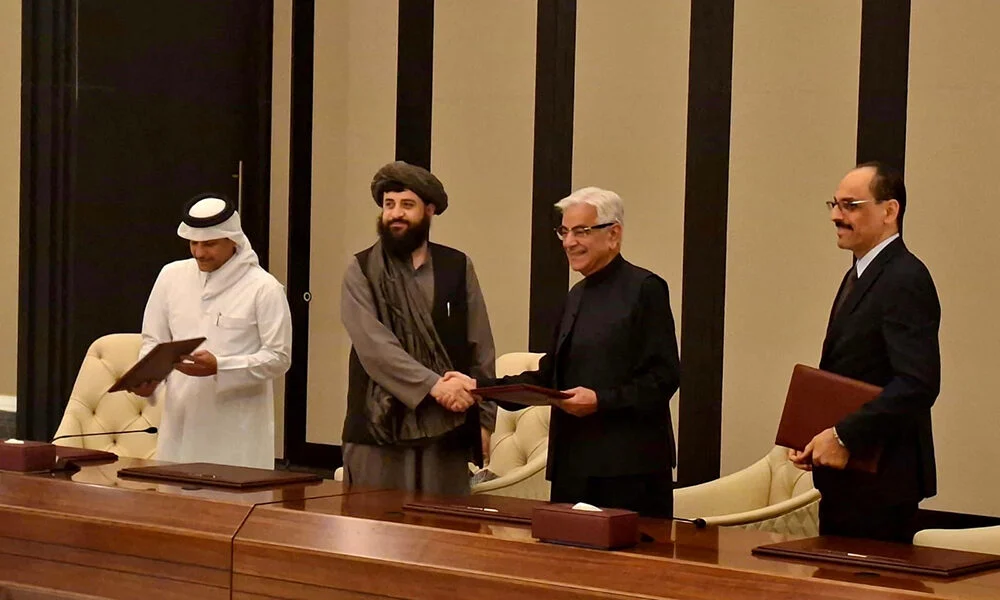“There is no good Taliban and bad Taliban,” Prime Minister Narendra Modi had once declared.The statement, meant to underline India’s categorical rejection of the Taliban’s ideology, was clear and emphatic. Yet, less than four years later, the same government rolled out the red carpet for the Taliban’s top diplomat.In a stunning reversal that has left both India’s foreign policy observers and domestic audience baffled, the Modi government hosted Afghanistan’s Foreign Minister, Amir Khan Muttaqi, in New Delhi, the first such visit since the Taliban’s return to power in Kabul in August 2021.
Until recently, the government, its supporters, and its television proxies were unrelenting in condemning the Taliban as a symbol of medieval brutality and “Islamic extremism”. Television anchors who once shouted hoarsely about “Talibanisation” and the “danger of jihadist takeover” suddenly fell silent as the same regime was greeted as an honoured guest in the Indian capital.
From Pariah to Partner
Muttaqi’s visit came amid a period of regional turbulence. The Taliban, long seen as Pakistan’s protégé, has turned sharply against Islamabad, accusing it of air strikes inside Afghan territory. Meanwhile, New Delhi, once the staunch backer of Afghanistan’s Northern Alliance, is now extending diplomatic courtesies to the very regime that displaced it.
India’s sudden outreach marks one of the most dramatic U-turns in its foreign policy in recent years. For decades, India maintained a principled distance from the Taliban, refusing any formal engagement. It had invested heavily in the puppet government of Kabul, poured in billions in development aid, and championed women’s education and civil rights in that war-torn country.
That position began to shift gradually after the U.S. withdrawal from Afghanistan in 2021. By mid-2022, India reopened a “technical mission” in Kabul to maintain humanitarian assistance. Now, External Affairs Minister S. Jaishankar has announced that the mission will be upgraded to a full-fledged Embassy of India. “India is fully committed to the sovereignty, territorial integrity and independence of Afghanistan,” Jaishankar declared after his meeting with Muttaqi.
For all practical purposes, this amounts to diplomatic recognition of the Taliban regime, a step most democratic nations have hesitated to take.
A Reversal Wrapped in Secrecy
There has been no official explanation for this sudden pivot. Neither the Ministry of External Affairs nor the PMO has outlined the reasoning behind the outreach. The government’s silence has only deepened public confusion.
Senior journalist Meenu Jain, in a video debate on Public India, argued that the Modi government’s shift “was less a strategic decision and more a reaction to Pakistan’s new hostility.” She claimed that India’s “sudden volte-face” on the Taliban regime followed the Operation Sindoor episode, when Pakistan’s assertive posturing in the region reportedly rattled New Delhi.
“The Modi government appeared frightened by Pakistan’s unpredictable aggression,” Jain observed, “and chose to open a channel with the Taliban to neutralise Islamabad’s leverage in Kabul and strategic depth to the Pakistan army.”
An Awkward Moment for Diplomacy
If the decision was driven by realpolitik, its execution left much to be desired. During Muttaqi’s visit, the Taliban organised a press conference at the Afghan Embassy in Delhi. Women journalists were barred from entry, provoking outrage.
Facing widespread criticism, the Taliban foreign minister hastily convened a second press interaction to include female reporters. The damage, however, was done. The optics of the episode, a misogynistic regime flouting gender equality norms in the heart of India’s capital, starkly contrasted with the government’s claims of upholding constitutional values.
Muttaqi also visited DarulUloom Deoband, the seminary that has historic ties to Afghanistan’s religious establishment. “I am happy to visit this great institution that has deep-rooted links with Afghanistan,” he said, praising the seminary as “a place of shared faith and learning.” The visit, symbolic yet politically sensitive, was quietly omitted from official briefings but widely noted in diplomatic circles.
The Realpolitik Argument
Supporters of the Modi government have tried to rationalise the Taliban outreach as a pragmatic adjustment to changing regional realities. Pro-Hindutva strategic commentator Brahma Chellaney argued that “the collapse of Pakistan’s longstanding strategy to isolate Afghanistan from India” had created an opportunity. While the TV anchors parroted the line “the enemy of my enemy is my friend.”
“The Taliban, no longer content to be Pakistan’s proxy, are actively broadening their diplomatic and economic ties – and India is the prime beneficiary,” Chellaney wrote on social media.
But this line of reasoning blurs the distinction between engagement and endorsement. Many nations, including Qatar, Iran, and Türkiye, maintain working relations with the Taliban without affording them the legitimacy of public honours or media platforms that exclude women. India’s choice to allow such optics, analysts note, betrays not diplomatic maturity but confusion.
Echoes of the Past
To understand the magnitude of India’s reversal, one must recall New Delhi’s long-standing hostility to the Taliban. During the 1990s, India stood firmly with the anti-Taliban Northern Alliance led by Ahmad Shah Massoud. The assassination of Massoud in 2001, just two days before the 9/11 attacks, ended India’s strongest link to Afghanistan’s resistance. Since then, India’s engagement in Afghanistan has been rooted in reconstruction and democratic partnership, not recognition of the Taliban.Now, that legacy appears upended.
Even the BJP’s ideological affiliates, who once used the Taliban as a metaphor to demonise Indian Muslims, have fallen conspicuously silent. The party’s spokespersons, known for their nightly fulminations against “Islamic extremism,” have avoided commenting on Muttaqi’s visit.
Pakistan Factor and Regional Chessboard
Pakistan’s estrangement from the Taliban has accelerated India’s outreach. Relations between Islamabad and Kabul have soured sharply since Pakistan accused the Taliban of harbouring the Tehreek-e-Taliban Pakistan (TTP) and other anti-Pakistan militants. The Taliban, in turn, accused Pakistan of bombing Afghan provinces, including Kabul and Paktika.
Meanwhile, Pakistan’s decision to forcibly repatriate over 80,000 Afghan refugees has further damaged ties. Against this backdrop, India’s engagement is being seen as a diplomatic counter-move, a bid to exploit Pakistan’s isolation.
But there are risks. The Taliban’s hostility toward Pakistan does not necessarily make it a friend of India. Nor does engagement guarantee influence. As one retired diplomat put it, “The Taliban are transactional. They will take India’s aid but not India’s advice.”
The Global Context
India’s decision also places it in an unusual diplomatic company. China was the first major power to accept Taliban-appointed diplomats, though without formal recognition. Russia followed in July 2025, formally recognising the Taliban regime and removing it from its list of terrorist organisations.
For Moscow, the move was driven by a desire to counter U.S. influence and secure regional stability. For Beijing, it was about resource access and strategic positioning. For India, however, the calculus is more complex, balancing its image as a democratic power with its regional compulsions.
A Shadow of Washington
Adding another layer to this intricate game is U.S. President Donald Trump’s renewed interest in Afghanistan. His recent remarks suggesting an American “return” to the Bagram airbase, now under Taliban control, have unsettled regional players. Both Russia and China have rejected the idea, as has the Taliban itself.
Some analysts view India’s engagement as an attempt to pre-empt such developments and ensure it retains a foothold in Kabul. “New Delhi does not want to be a bystander if Afghanistan once again becomes a theatre of great power rivalry,” says a South Block official, requesting anonymity.
Muted Domestic Response
Within India, the government’s about-face has generated confusion rather than debate. The Congress has accused the government of “policy hypocrisy,” pointing to the arrest of several Muslims in 2021 for allegedly “celebrating” the Taliban’s return. “The same regime that jailed citizens for even commenting positively about the Taliban is now embracing it diplomatically,” remarked a Congress leader.
Civil society voices have been sharper. Women’s rights activists criticised the government’s tolerance of the Taliban’s gender apartheid, calling it a betrayal of India’s commitment to equality. “If India cannot even ensure the presence of women journalists in a diplomatic event on its soil, what message does that send?” asked activist Kavita Krishnan.
The Unanswered Questions
As India and the Taliban announce new cooperation in trade, healthcare, and education, deeper questions remain. Will India’s embassy in Kabul fly the tricolour or the black-and-white Taliban flag? Will this engagement evolve into formal recognition?
More importantly, what does India gain from this rapprochement, and at what cost?
Jaishankar has framed it as a step toward “regional stability and resilience.” Muttaqi, for his part, emphasised “shared security concerns,” especially cross-border terrorism. But the Taliban’s own record on human rights, and women’s education remains dismal.
Playing with Fire
Foreign policy shifts, even bold ones, are not inherently wrong. But they must be anchored in clarity and conviction. India’s current policy toward the Taliban seems neither. It reflects improvisation rather than vision, a desire to score tactical points against Pakistan rather than a coherent strategy for South Asia.
The visit of Amir Khan Muttaqi has indeed signalled a new phase in India’s Afghanistan policy but also exposed a deep contradiction between the government’s moral posturing and its political pragmatism. As in the aftermath of the Taliban’s 2021 takeover of Afghanistan, Modi and other Indian officials had declared unequivocally that “there is no good Taliban and bad Taliban.”
The irony today is unmistakable. With the same regime now being courted diplomatically, the ruling party and its ecosystem have also lost one of their key instruments of communal polarisation, the spectre of the Taliban that was once invoked to stoke domestic fears and prejudices.


